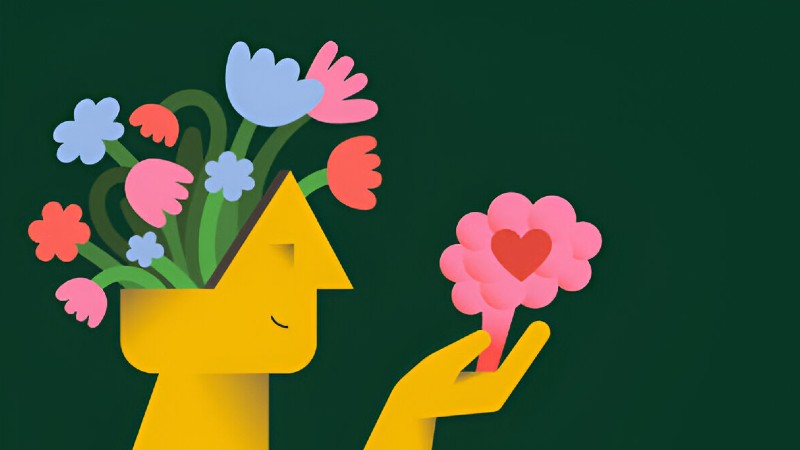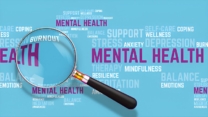
Mental Health First Aid: Simple, Everyday Habits for a Stronger Mind
Mental health is just as important as physical health, yet many of us neglect simple daily practices that can protect and strengthen our minds. While professional mental health support is essential in times of crisis, integrating small, consistent habits into everyday life can improve resilience, reduce stress, and support long-term mental wellness.
Why Everyday Habits Matter for Mental Health
We often think of mental health support as something we seek only when problems arise. However, the brain is highly responsive to daily habits, and small changes can make a big difference over time.
- Consistency Builds Resilience: Simple daily routines can strengthen neural pathways, making it easier to manage stress and adapt to challenges.
- Early Intervention: Recognizing small signs of stress or low mood allows you to take action before they escalate.
- Reduces Stigma: Normalizing proactive mental health care encourages conversations and reduces shame.
Think of these habits as mental health first aid. Just as first aid kits prepare us for emergencies, these practices equip our minds to handle everyday stressors and emotional challenges.
Core Habits for a Stronger Mind
1. Prioritize Sleep and Rest
Sleep is foundational to mental health. Adults need an average of 7-9 hours per night for optimal cognitive function and emotional balance.
- Example: Keep a consistent sleep schedule, even on weekends, and create a bedtime routine with relaxing activities like reading or meditation.
- Impact: Poor sleep increases stress hormones and reduces emotional regulation, leading to anxiety and depression over time.
2. Move Your Body Regularly
Exercise is a powerful tool for mental wellbeing. Physical activity stimulates endorphins, which improve mood and reduce symptoms of anxiety and depression.
- Even short walks of 10-15 minutes can improve focus and reduce stress.
- Strength training or yoga can enhance self-esteem and promote mindfulness.
- Example: Schedule three 20-minute walking sessions throughout your day, or take a 15-minute stretching break between work tasks.
3. Mind Your Mindset with Positive Reflection
Cognitive habits shape our mental resilience. Daily reflection and positive thinking exercises help reframe negative experiences.
- Gratitude Journaling: Write down three things you are grateful for each day.
- Reframing Challenges: Instead of seeing a mistake as failure, view it as an opportunity to learn.
- Example: After a stressful meeting, note one takeaway that could help you improve next time.
4. Cultivate Social Connections
Strong social bonds are linked to lower rates of depression and higher resilience against stress.
- Regularly check in with friends and family.
- Join local clubs, support groups, or online communities.
- Example: Schedule a weekly video call with a friend or colleague you trust.
5. Practice Mindful Eating
Nutrition has a direct impact on mental health. Brain-friendly foods can stabilize mood, reduce anxiety, and improve focus.
- Include omega-3 rich foods like salmon, chia seeds, or walnuts.
- Limit refined sugars and highly processed foods that can spike anxiety.
- Example: Start your day with oatmeal topped with fruit and nuts, combining fiber, vitamins, and healthy fats.
Integrating Mental Health First Aid Techniques into Daily Life
Mental Health First Aid (MHFA) is commonly associated with crisis intervention, but its principles can be applied every day to support both yourself and others.
Using the ALGEE Framework Daily
The ALGEE method, used in MHFA training, can be adapted for everyday mental health:
| ALGEE Step | Daily Application |
|---|---|
| Approach, Assess, Assist | Check in with yourself: How am I feeling today? If stressed, take a short break or reach out to a friend. |
| Listen non-judgmentally | Practice mindful listening during conversations, both with yourself (reflective journaling) and with others. |
| Give support and information | Share helpful coping strategies or reliable mental health resources with friends and family. |
| Encourage professional help | If you or someone you care about shows persistent low mood or anxiety, seek guidance from a GP or counselor. |
| Encourage self-help strategies | Incorporate habits like daily walks, meditation, or hobby time to reinforce mental strength. |
Example of a Daily Mental Health Routine
Here’s how you can integrate these habits into a practical day:
- Morning: 10-minute mindfulness meditation + a balanced breakfast.
- Midday: 15-minute walk and gratitude journaling.
- Afternoon: Short break for stretching + positive reflection on work progress.
- Evening: Connect with a friend or family member + light exercise like yoga.
- Night: Wind down with reading, limit screens, maintain consistent sleep schedule.
Statistics Highlighting the Impact of Daily Mental Health Practices
Several studies demonstrate the benefits of these daily habits for mental health:
| Habit | Impact | Source |
|---|---|---|
| Regular exercise | Reduces symptoms of depression by up to 30% | Harvard Health, 2022 |
| Gratitude journaling | Improves overall wellbeing and reduces anxiety scores by 18% | APA, 2021 |
| Mindful meditation | Reduces cortisol levels and improves emotional regulation | Mayo Clinic, 2020 |
| Social connection | Strong relationships reduce risk of depression by 50% | NIH, 2022 |
Treating Mental Health Habits Like First Aid Skills
Most advice emphasizes therapy or crisis management, but few view daily habits as proactive first aid for the mind. Thinking this way reframes mental wellness as an ongoing, skill-based practice:
- Just as we learn CPR or bandaging, we can train our brains through regular mental health exercises.
- Developing daily habits reduces the severity and frequency of mental health crises.
- Encouraging friends and family to adopt simple routines creates a supportive community environment.
This perspective empowers individuals to see mental health care as active, everyday self-protection rather than a reactive measure.
Tips for Staying Consistent
- Start Small: Introduce one habit at a time and gradually build.
- Track Progress: Use a journal or app to monitor your mood and habits.
- Pair Habits with Existing Routines: E.g., gratitude journaling after brushing teeth or a short walk after lunch.
- Be Flexible: Mental health first aid is about support, not perfection. Adapt routines to your needs.
Conclusion
Strengthening your mind doesn’t require expensive therapy or hours of meditation. Simple, everyday habits—sleep, movement, nutrition, social connection, and mindful reflection—act as a form of mental health first aid, protecting you against stress, anxiety, and depression. By treating mental wellness like a skill to be practiced daily, you can build resilience, improve emotional regulation, and support both yourself and those around you.
Frequently Asked Questions (FAQs)
What is mental health first aid?
Mental health first aid refers to practical strategies and interventions that help support mental wellbeing and respond to early signs of stress, anxiety, or depression. It involves both professional help when necessary and everyday habits that strengthen mental resilience.
Which daily habits improve mental health?
Key daily habits include prioritizing sleep, exercising regularly, practicing mindfulness or gratitude journaling, maintaining social connections, and mindful eating. Consistency in these habits builds long-term mental resilience.
How can I treat mental wellness like first aid?
Just as first aid prepares you for physical emergencies, treating mental wellness like first aid involves proactive, daily practices that prevent stress and emotional burnout. Simple routines like checking in with your emotions, practicing gratitude, and exercising regularly act as “mental health first aid.”
Can small habits really reduce anxiety or depression?
Yes. Studies show that consistent small habits, such as mindfulness exercises, regular physical activity, and positive reflection, can significantly reduce symptoms of anxiety and depression, improve mood, and enhance overall emotional regulation.
How do I stay consistent with mental health habits?
Start small, track your progress, pair habits with existing routines, and be flexible. Consistency is more important than perfection, and gradually integrating habits into daily life makes them sustainable long-term.












